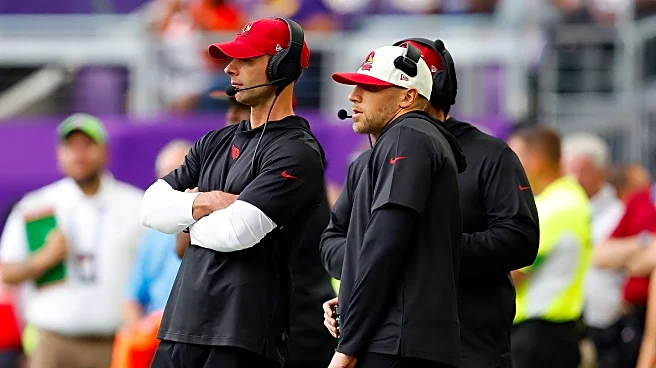What's Happening?
Private equity firms are increasingly interested in the youth sports sector, which is estimated to be a $40 billion industry. Christopher Russo, CEO and founder of Fifth Generation Sports, highlights the potential
for mergers and acquisitions (M&A) and capital raises within this fragmented market. The sector's appeal lies in its size, fragmentation, and perceived recession resistance, as parents continue to invest in their children's sports activities. Prominent investors like Harris Blitzer and KKR have already entered the space, further attracting interest from other private equity firms. Key areas of investment include sports facilities, software, events, and streaming media, each offering unique opportunities for growth and consolidation.
Why It's Important?
The growing interest in youth sports by private equity firms could significantly impact the industry by driving consolidation and professionalization. This influx of investment may lead to improved facilities, technology, and event management, potentially enhancing the overall experience for young athletes. However, there are concerns that increased costs could price out some families, particularly those with limited financial means. The professionalization of youth sports might also add psychological pressure on young athletes, as their performances are increasingly scrutinized. Investors have the opportunity to address these challenges by implementing responsible pricing strategies and supporting community access to sports programs.
What's Next?
As private equity firms continue to explore opportunities in the youth sports sector, they may focus on consolidating smaller businesses to create larger, more efficient operations. This could involve acquiring sports facilities, software companies, and event organizers to streamline operations and maximize profitability. Investors will need to consider the ethical implications of their investments, ensuring that they do not exacerbate existing inequalities in access to sports. Additionally, they may explore partnerships with local communities to provide affordable sports programs and mitigate the psychological impact on young athletes.
Beyond the Headlines
The professionalization of youth sports could lead to long-term shifts in how sports are perceived and valued in society. As private equity firms invest in this sector, they may influence the cultural significance of youth sports, potentially elevating its status and importance. This could result in increased media coverage and public interest, further driving investment and growth. However, it is crucial for investors to balance commercial interests with the well-being of young athletes, ensuring that the industry remains inclusive and supportive of all participants.











